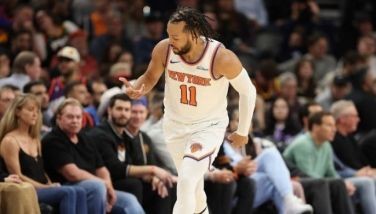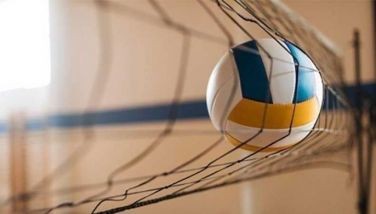Elusive Olympic dream

International Olympic Committee (IOC) member Mikee Cojuangco-Jaworski said recently she believes the POC, PSC and NSAs know what it necessary and what they must do to make the elusive dream of capturing the country’s first Olympic gold medal a reality. But unfortunately, they lack the tools to get the job done, she lamented.
“Sport has become extremely driven by science and even more competitive,” she told The Star. “Many countries have an amazing amount of pride in their success in sports and the benefits it has created not just for athletes but also for national morale and even the health of its individual citizens, among others and thus, invest accordingly. We have yet to grow in our appreciation of that. We also pride ourselves in having a lot of heart. There is no question about that. But I don’t believe there is an Olympian out there without an extraordinary amount of heart. We will not win a gold medal based on that alone. So while other countries invest in sports for gains beyond medals that are clearer to them, we struggle to keep up. I believe that unless we begin to see sports better in this sense, an Olympic gold medal will remain elusive.”
Over the past year, there has been talk of establishing a Philippine Academy of Sports through a private initiative but backed by the Department of Education. There has also been talk of the POC spearheading the creation of a National Training Center. Mikee said no doubt, a more organized and consolidated way to train the country’s national athletes is necessary so that programs are properly and efficiently implemented.
“No organization or institution in our country can do it alone, building synergies among the different players is crucial,” she continued. “However, roles and responsibilities must be clear to achieve our country’s goals effectively and hopefully, minimize unnecessary semantics. It is also important to remember that it is the National Olympic Committee (NOC) that is recognized by the IOC and as such, promotes the Olympic values in our country, oversees the development and promotion of sport for all as well as high performance sport and selects the team to be sent to the Olympic Games. Therefore, it makes sense that the NOC is involved in all sport-related discussions and helps streamline the different activities.”
As an IOC member, Mikee said she has a role to play in the POC, too. “I would like to keep the POC abreast of the policies and developments in the IOC,” she went on. “I would like to share what I learn as an IOC member and thereby, advance the efforts of the POC and help the POC adapt these to our culture, our strengths and our limitations. In our case, I see a very fine line between what are our strengths and what are our limitations.
“In all we would like to achieve, the cooperation and assistance from the NSAs, government, media and athletes themselves are a must. We will not see progress if we are not prepared to acknowledge where we are wrong, bite the bullet and move forward. I am desperately hoping to see more effort and less bickering. More positivity so people see the beauty and advantages of sports and less crab mentality. Sports is an amazing tool for nation-building.”
* * * *
Since her election into the IOC last year, Mikee has been drawn closer to discussions related to the future of the Olympic movement. “All the IOC members have been asked to submit our comments and ideas with regard to the Olympic Agenda 2020,” she said. “Although I do not have specific issues that I want to bring up, I will certainly send in my thoughts and hope these will be positive contributions. I will know more (about my duties) after the (extraordinary General Assembly) session in December but before then, I have trips almost monthly for sports events, competitions and meetings.”
The December session will focus on the Olympic Agenda 2020 which Mikee described as the strategic roadmap for the future of the Olympic movement initiated by IOC president Thomas Bach.
“After each edition of any Olympic Games, the IOC reviews the Olympic program,” she said. “On the occasion of each review, the standards for the inclusion of sports, disciplines and events may be reviewed and the inclusion or exclusion of sports, disciplines or events determined by the competent IOC organs. The Olympic Charter, which is the guiding document of the Olympic movement, lays out the rules with regard to the sports on the Olympic program and the IOC has policies in place to keep the program attractive and ensure the sustainability and universality of the Games.
“It’s possible for new sports seeking inclusion to be chosen or not and also possible for a sport currently in the program not to be chosen. But for those sports, not being chosen and having another sport come in does not at all mean that it will not be on the program again in the future. The Charter says that ‘the inclusion of any sport in the program of any edition of any Olympic Games shall be decided no later than at the session electing the host city of that edition of the Olympic Games’ and that ‘the inclusion of disciplines or events into the program of any edition of any Olympic Games shall be decided by the IOC Executive Board not later than three years before the opening of the Olympic Games.’ I see it as part of the constant evolution of the IOC and thus, the Olympic Games which means policies can be made or adjusted as the IOC deems necessary.”
* * * *
Mikee said the IOC works closely with NOCs and international sports federations or IFs to ensure the universality of the Olympics. “The qualification process for the Olympics falls under the IF and the NOC selects the team they are sending to the Games,” she explained. “Each IF has its own standards and reasons behind the qualification criteria and to use equestrian sport as an example, it must and does include the ability of the athletes to participate in the highest level of competition safely. There is also a responsibility to ensure that the best and most deserving athletes get the opportunity to perform on the Olympic stage. That said, I am sure each IF has its unique issues as far as qualification, availability of slots and other matters are concerned.
“The IOC has its Olympic Athletes’ Scholarship and Olympic Solidarity programs that NOCs can avail of to help athletes to qualify and go to the Olympics. As an example, our very own Michael Martinez, the ice skater from our beloved tropical Third World country, was able to compete in Sochi. He is an Olympic Solidarity scholarship holder among other sources of funding he received. There are other recipients like him, through not from Third World countries, who were medalists in Sochi.”unbeateb
Mikee said she is in the process of building relationships within the IOC family. “After the Sochi Games, I can say that I have become friends with a few members like Kirsty Coventry from Zimbabwe and a few of my ‘batchmates’ as well as some members of the Athletes Commission,” she added. “The relationships have many different levels but there is only one ultimate goal which is to put sports at the service of human kind.
“I am very thankful for the pride many of our countrymen have in my election and hope I have their faith and trust in fulfilling my role as IOC representative to the Philippines. This is especially so that our countrymen might also be counted on for the development of sports toward its full potential in benefits for our country because it will not always be an easy ride. But it will certainly be worth it. One of the most useful first steps must be a clearer understanding of the sports structure in the Philippines by the general public and also what the role of an IOC member is.”
- Latest
- Trending





























